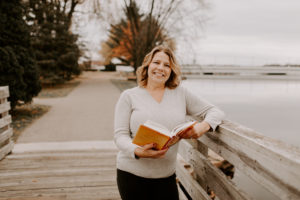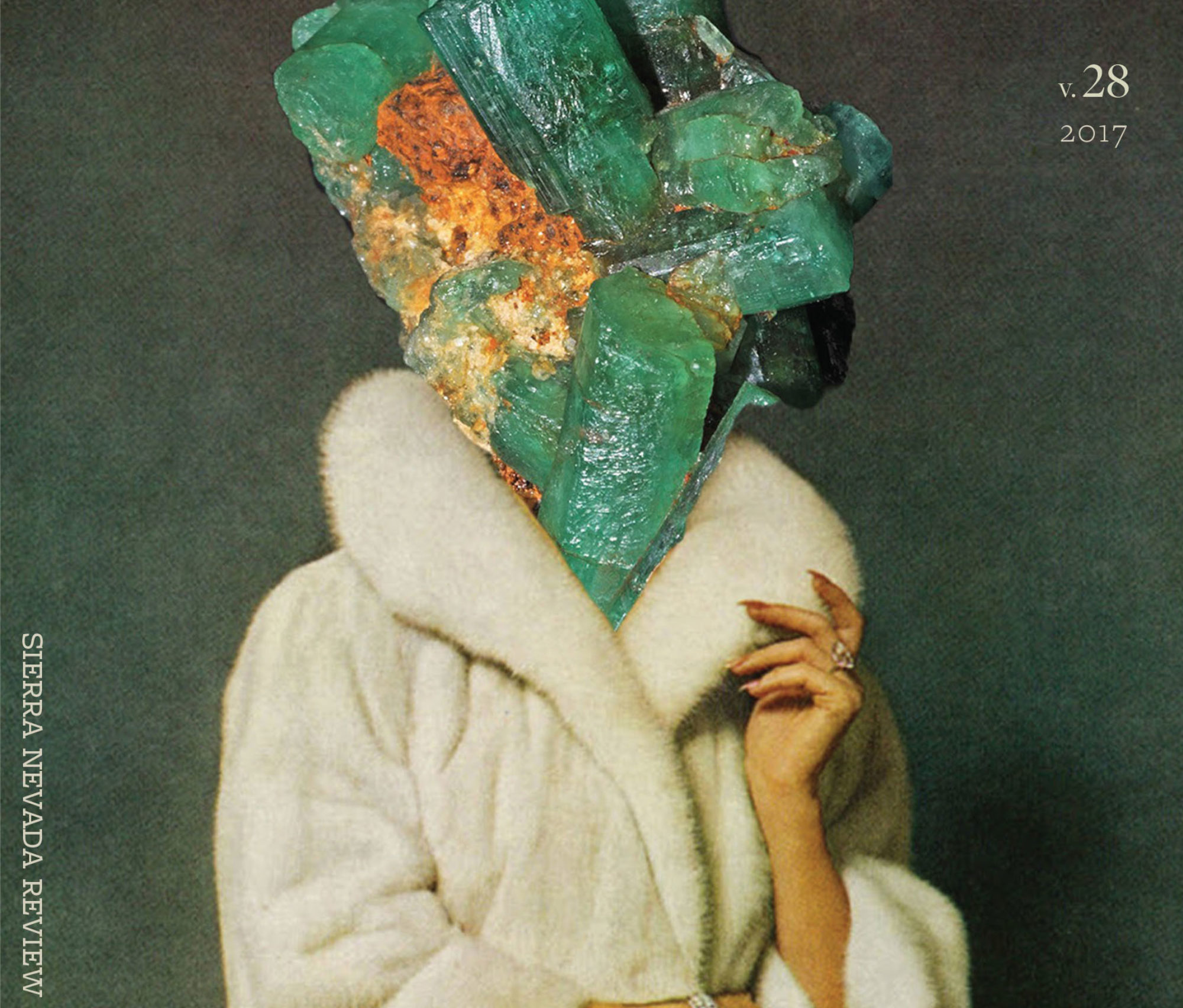Melissa Matthewson is an author who does not shy away from topics that are difficult to write about, and her first book, Tracing the Desire Line, a memoir in essays, is a testament to that fact. Matthewson’s work is the intersection of parts of her life: her interest in nature and the environment—she holds two degrees in Environmental Sciences—finding its way into her work as she writes about life on the farm that she shared with her husband and children, and her study of literary craft—she earned her MFA from the Vermont College of Fine Arts—developing a lyrical, compelling, and risky story about a marriage and family and life from which she wanted more.
After recently reading Tracing the Desire Line (Split Lip Press, 2019) I had the good fortune to get to speak with Matthewson about her book, which has just recently celebrated one year in publication. Matthewson is friendly and open, and her long curly hair blew in the breeze of the Oregon outdoors as we FaceTimed, each of us with a glass of wine in hand. She was generous with her time and thoughtful in her answers as I asked about the writing and publishing of her book.
The memoir explores many roles of the narrator’s life, but at the core of the story is the decision that Matthewson and her husband make to challenge traditional boundaries and open their marriage. I asked Matthewson about publicly sharing this intimate story, and she acknowledged that yes, it was difficult to expose vulnerable parts of her life, especially having young children (they have not read her book yet, but they have been at a few of her readings where she carefully selected parts about them to share with her audience). She told me that when her children are old enough to understand relationships and marriage that she will encourage them to read the book.
Matthewson also indicated that writing about very personal topics does not come without a cost: she and her mother did not speak for several months after the book’s release, as her mother’s views on marriage and sexuality did not line up with her own. Over time, though, they have been able to work through their differences. I asked about other family members’ reactions to the book: her in-laws told her it was a beautiful book and reading the memoir made her husband cry. He, of course, had read excerpts along the way, and several essays from the book had been published previously, but he found the entirety of the book quite moving.
No spoilers here, but I will share that Tracing the Desire Line does not answer every question a reader might have about Matthewson’s marital journey. I wondered if at her readings audience members asked about “what happened next”. She told me that sometimes she’d avoid answering a question if it strayed from the confines of the book, but that mostly the audience was connected to the material she shared and that felt fulfilling.
Matthewson began writing essays about her life as she pursued her MFA, and she said that it took her seven years to find what she felt was the narrative through-line of her collection of work. As Matthewson compiled her work, she indicated that she had to fill in gaps where a reader might not follow the story and also that each essay can stand alone, but together, as a whole, the book makes a story.
After two years of restructuring what she had written, Matthewson found that because the structure of her book was nonlinear, fragmented, and experimental, it was a hard sell for big publishers. So she submitted her work to university and small presses. There were two publishers who wanted to buy it, and she decided to go with Split Lip Press.
She chose this smaller independent press for two reasons: they tend to work with first-time authors, and the editor she worked with helped her immensely. But also, Matthewson liked what the press focuses on: boundary-breaking prose books, work that questions truth, and writing that reinterprets what we know. Because Tracing the Desire Line pushes boundaries of what a marriage “should” look like and seeks to redefine a woman’s role as wife and mother, it makes sense that Split Lip was the right fit for her.
I asked if Matthewson has begun her next book, and if so, where she finds her inspiration for writing. She told me that she is very connected to nature and tries to walk about two hours a day. She also shared that when she is feeling stuck, she reads or watches films to take in stories, and also that music is a huge source of inspiration for her. Despite writing about her own life, Matthewson told me that she has always been able to separate herself a little from the art, even in the crafting of it, which helps.
As our conversation wound down, we laughed that she has a running joke with people in her life that “everything is on the table to write about”. As my last question, I wondered if her next book would be equally risky. She smiled and said, “Well…it’s exploring love, sexuality, and nature…so yes!”
*
 After 30 years of helping young people with their writing as a high school English teacher, Pam Anderson retired and decided to finally dedicate energy to her own work. She is presently pursuing her MFA in creative nonfiction at Sierra Nevada University. Her essays and criticism have appeared in the Manifest-Station, Bookends Review, and Chicago Review of Books.
After 30 years of helping young people with their writing as a high school English teacher, Pam Anderson retired and decided to finally dedicate energy to her own work. She is presently pursuing her MFA in creative nonfiction at Sierra Nevada University. Her essays and criticism have appeared in the Manifest-Station, Bookends Review, and Chicago Review of Books.
